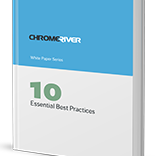
Expense management is, by its very nature, one of the business apps with the greatest requirement for deep mobile functionality. Many software solutions are mainly used in-office, and can often get by with relatively limited mobile functionality for consuming data. However, expense management requires a significant amount of creating data while on the road – capturing receipts, creating reports and so on.
Therefore, mobile functionality can’t simply be a checkbox on an RFP response – it should be assessed as an integral part of your review of global expense management solutions. After all, who hasn’t seen a weary road warrior switching from device to device looking to see which one has the most battery life?
This requirement is heightened by the fact that business travelers are increasingly ditching laptops for business trips, in place of tablets and the ubiquitous smartphone. Not only can tablets be left in your carry-on bag at airport security, but with the introduction of web apps and responsive design for business apps means that you can have the same functionality and look-and-feel on a tablet or smartphone as a laptop, without the need for a dedicated app.
Related: Responsive Web Design for Your Mobile Workforce
With all that said, what expense management capabilities should your solution be able to offer, when accessed from a smartphone or tablet?
Receipt capture
The first and most critical element of a mobile expense solution is receipt capture, so you don’t need to keep your receipts incurred on the road. While all solutions offer this to some extent, there can be differences in how you can enter them into the system. Look for a solution that offers you multiple ways of uploading receipts and automated real time data extraction, such as direct upload from the device’s photo app or the ability to snap and send then to your report via email.
Equally as important is what happens to the receipts once you’ve sent them into the expense system. Having to manually enter vendor, cost and amount against each receipt image can become a real drag on long trips, so a solution that uses OCR (optical character recognition) to automatically read the receipt and populate the expense form is a big help. For items such as hotel bills, these capabilities can go even further: simply forward the email with your hotel folio from your smartphone, and it will be automatically parsed and mapped directly into your expense report, so that each element (room, tax, parking, food, etc.) appears as individual line items in your report.
Expense report creation and submission
Getting reimbursed quickly requires submitting your expenses promptly – and this can be slowed down if you have to go back to the office to do so, because with some applications it can be challenging to create and submit your form on a mobile device. Using a solution that employs a web app and responsive design to give you the same user experience regardless of what device they use means that it’s just as easy to work on a mobile, a tablet or a laptop, eliminating this concern.
Expense report approval
Although most users only need to create and submit expense reports, line managers also require the ability to approve reports on the go, to avoid slowing down the reimbursement process. Therefore, approving expenses needs to be simple and hassle-free. This means having the ability to approve directly from an alert email, or being able to easily drill down and view / approve individual line items in your device’s browser.
Mobile integration with booking tools
Although most trip elements are booked in the office, almost every business traveller has a tale of having to change plans halfway through a trip: extend or cut short the stay; tack on another stop on the itinerary and so on. Although online booking and trip management tools (such as Sabre’s GetThere and TripCase) enable you to make itinerary changes from your mobile device, if it’s not integrated with your expense management solution, it can make the process of updating your expense report unnecessarily complex. The ability to seamlessly move booking and travel receipt data between your booking tool and expense management tools can make your travelers’ lives significantly more straightforward.
Full, app-free, access to all capabilities
While most of us have grown to rely on richly designed apps for a variety of functions, from games to entertainment to productivity, when it comes to accessing business tools, apps rarely give the same level of functionality as the native browser-based solutions. In addition, the ever-growing line up of handsets, combined with several mobile operating systems, means that there could be a range of different versions of the same app across a large organization.
Not only does this present a considerable training and support headache, but it also means that your users may well be missing out on much of the solution’s functionality unless they are back at their desk. Therefore, you should look for an expense solution that allows you to deliver full functionality on any device, regardless of operating system, simply by opening the browser.
Mobile payment integration
Although adoption of Apple Pay and Google Wallet has been relatively slow, mobile apps with integrated payments – such as Uber – have become phenomenally successful for both personal and business travel. On top of automatic payment, users can set up their Uber business profile to automatically forward receipts, along with ride maps, into their expense report the moment that the journey is complete.
Next time you’re looking at expense solutions, make sure that you review its mobile capabilities as much as how it works in the office. Your team will thank you.
Subscribe
Latest Posts
Posts by Category
I just love the Chrome River application. I could probably sell it! Finance Administrative Coordinator Law Firm, 800 Employees
Can’t we just move year-end, so that we can roll out Chrome River sooner!? Financial Systems Director Law Firm, 300 Employees


Comments